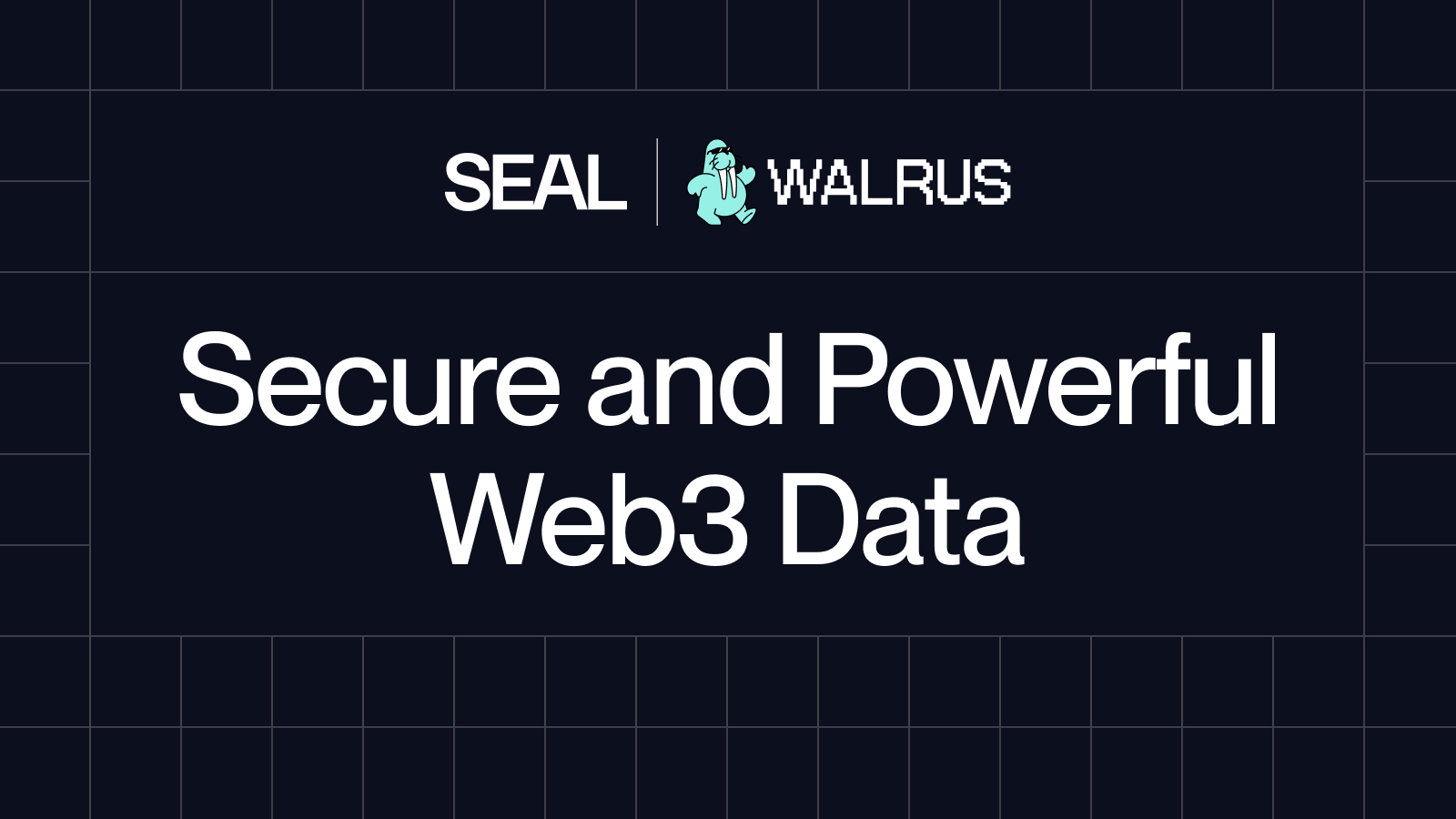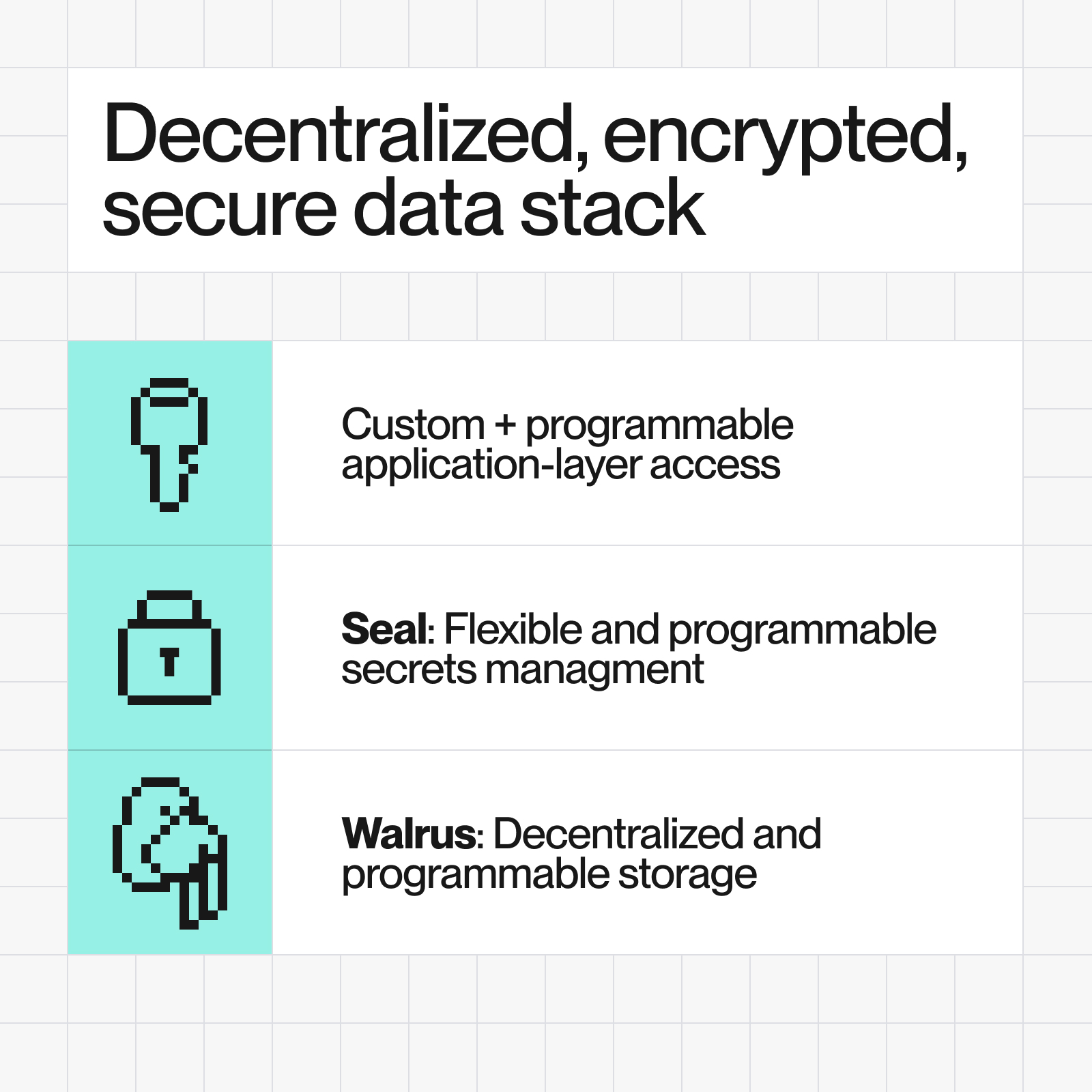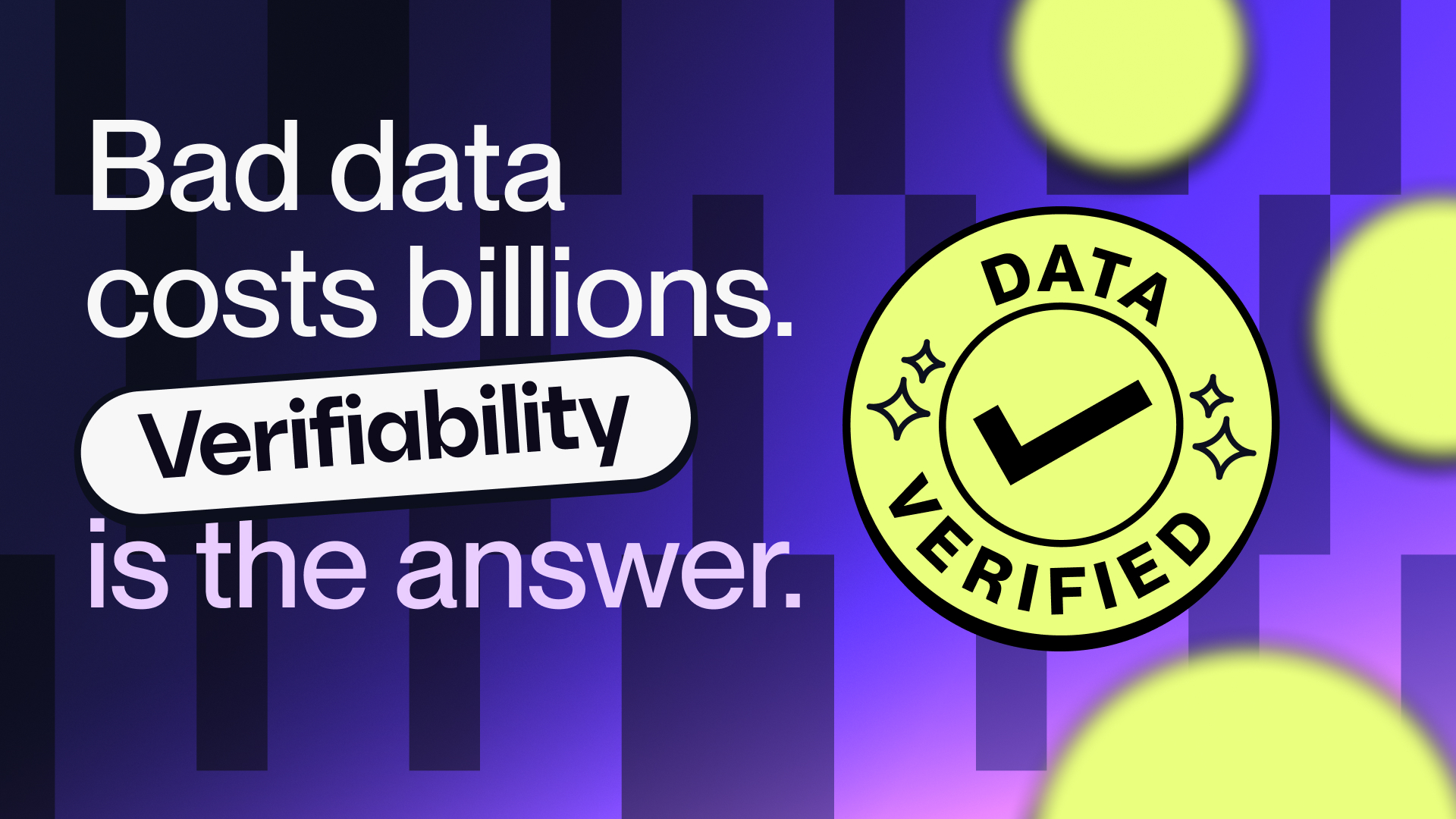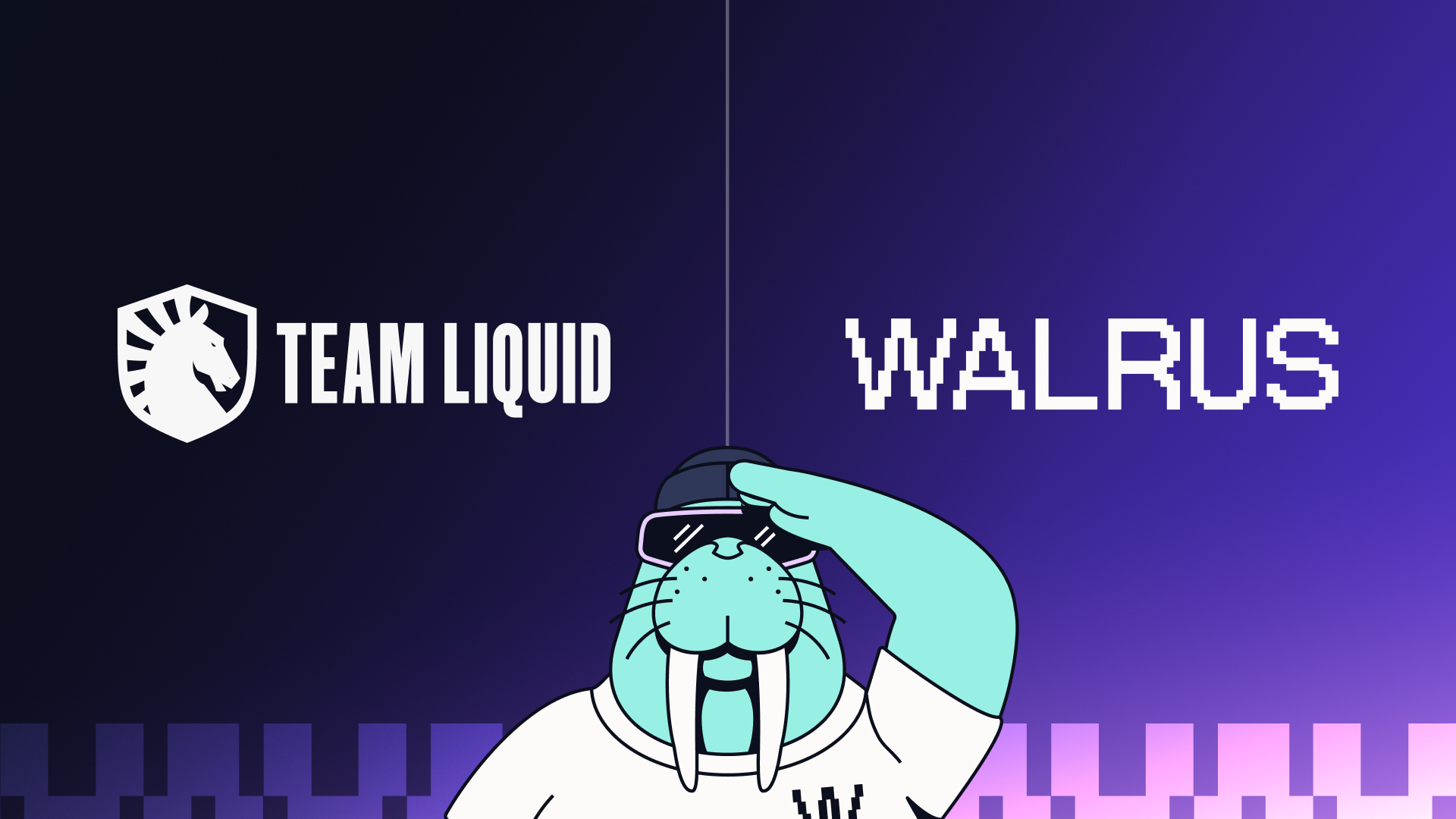From Public to Private: Rethinking Web3 Data Security
Together, Seal and Walrus change the decentralized storage game.

Decentralized storage is a foundational pillar of Web3, enabling users and apps to store data without relying on centralized providers. But with that freedom comes a big challenge: data security. In a permissionless world, how do you ensure that sensitive content—whether user documents, game assets, or AI datasets—is private, access-controlled, and recoverable?
Today, Web3 storage solutions often fall into an uncomfortable pattern: data is public by default, encryption is left to app developers, and access control is hard-coded, brittle, or missing entirely.
This issue has been actively addressed by Seal, which offers a secure & programmable encryption layer that aligns with decentralized architecture of Walrus while remaining developer-friendly.
Web3 data security problem
Web3 empowers users with ownership and transparency, but also exposes raw content to anyone with a link. That’s a feature for some use cases (like NFTs), but a risk for others:
- An artist or fan uploads private concert footage meant for ticket-holders only, and finds it leaked.
- A DAO shares sensitive proposals on IPFS, visible to competitors before voting even starts.
- An AI builder stores datasets on decentralized storage but has no control over who accesses or monetizes them.
Most decentralized storage solutions don't offer built-in encryption or smart access control. They shift that burden to the app layer, creating fragmented security practices and poor UX.
That’s where Seal, a product developed by Mysten Labs, comes in bringing composable, onchain access control and threshold encryption to decentralized storage workflows.
Meet Seal: Decentralized encryption and access control
Seal is a decentralized secrets management system designed for Web3. It makes encryption programmable, verifiable, and recoverable, with no centralized key custodian required.
With Seal, builders can:
- Encrypt data client-side using identity-based encryption (IBE)
- Define onchain access policies using Move smart contracts on Sui
- Use threshold-based key servers (t-out-of-n) to distribute trust
- Enable time locks, token-gating, role-based access, or app-defined logic
- Rotate keys with envelope encryption and support flexible patterns
Whether you're building data marketplaces, NFT platforms, confidential AI agents, or DeFi dashboards—Seal ensures only the right people, at the right time, for the right reasons can decrypt the content.
Why Walrus is the most advanced decentralized storage layer
Walrus is a next-generation decentralized storage solution purpose-built for composable Web3 infrastructure. Unlike traditional IPFS pinning services or S3-compatible blobs, Walrus is:
- Structured: Supports content versioning, indexing, and metadata
- Fast: Aggregators and publishers optimize access and retrieval
- Programmable: Storage nodes can expose custom APIs and trigger events
- Verifiable: Content authenticity and availability are auditable onchain
Walrus offers decentralized, content-addressable storage with first-class support for both static blobs and dynamic publishing workflows - ideal for apps, DAOs, marketplaces, AI platforms, and more.
Seal + Walrus: a powerful combination for builders and users
Together, Seal and Walrus form a seamless pipeline for secure, decentralized content workflows. Think of Seal as the lock, and Walrus as the vault.

Developing with Walrus and Seal together can unlock a diverse set of use cases, like:
- Token-gated content: Store high-resolution media or research datasets on Walrus, encrypt with Seal, and gate access via NFTs or roles.
- AI dataset marketplaces: Share proprietary training data or inference outputs while enforcing usage access policies.
- Game assets or story logic: Reveal encrypted in-game content only when a player reaches a certain level.
- DAO proposals & reports: Ensure proposals or voting outcomes remain confidential until specific governance triggers.
- Private messaging: Encrypt attachments and chat logs with Seal; store on Walrus with recoverable access.
You can achieve all of this and a lot more, without trusting any single server, admin, or platform.
Get started today
Walrus can be used along with Seal to enable encryption and access control within decentralized storage workflows. Developers can start building with both right away.
- Try the Seal SDK
- Learn about Walrus and check out the developer guide
- Take a look at the code for Seal example app to see content gating in action
The future of data in Web3 is encrypted, access-controlled, and decentralized. With Seal and Walrus, that future is already here.




